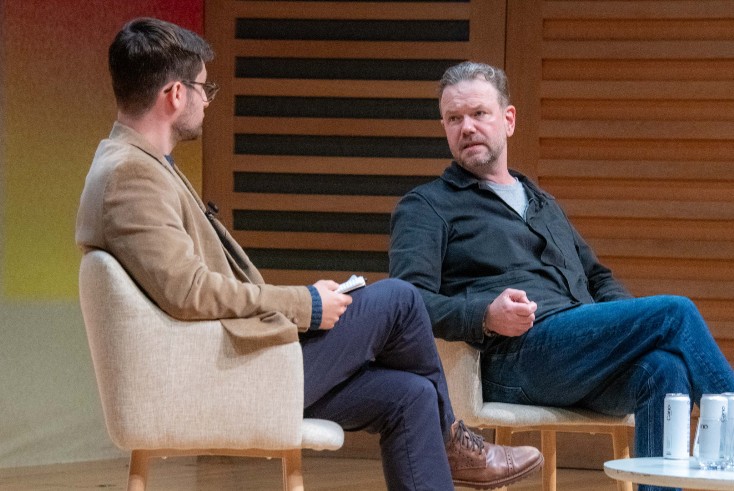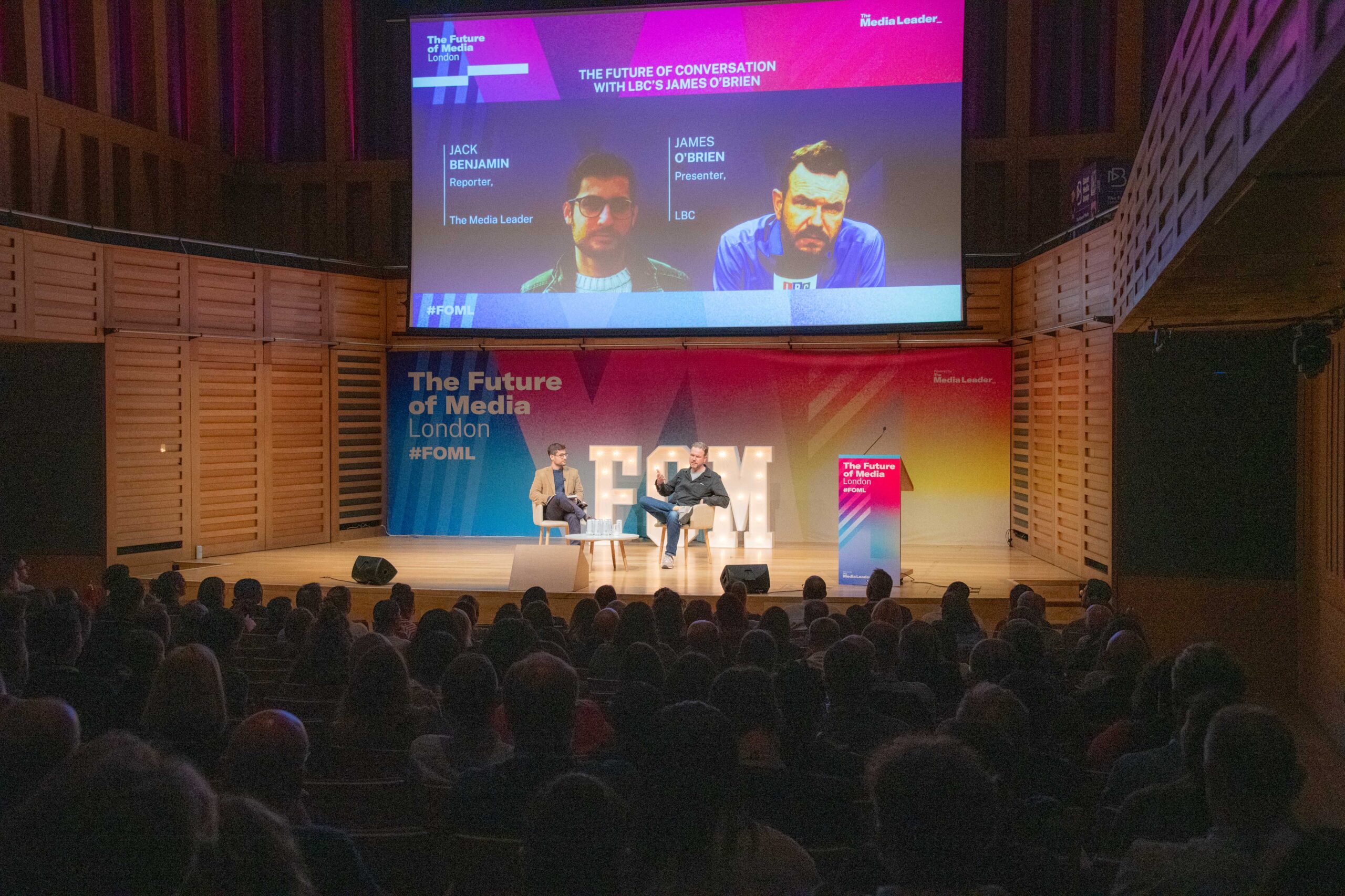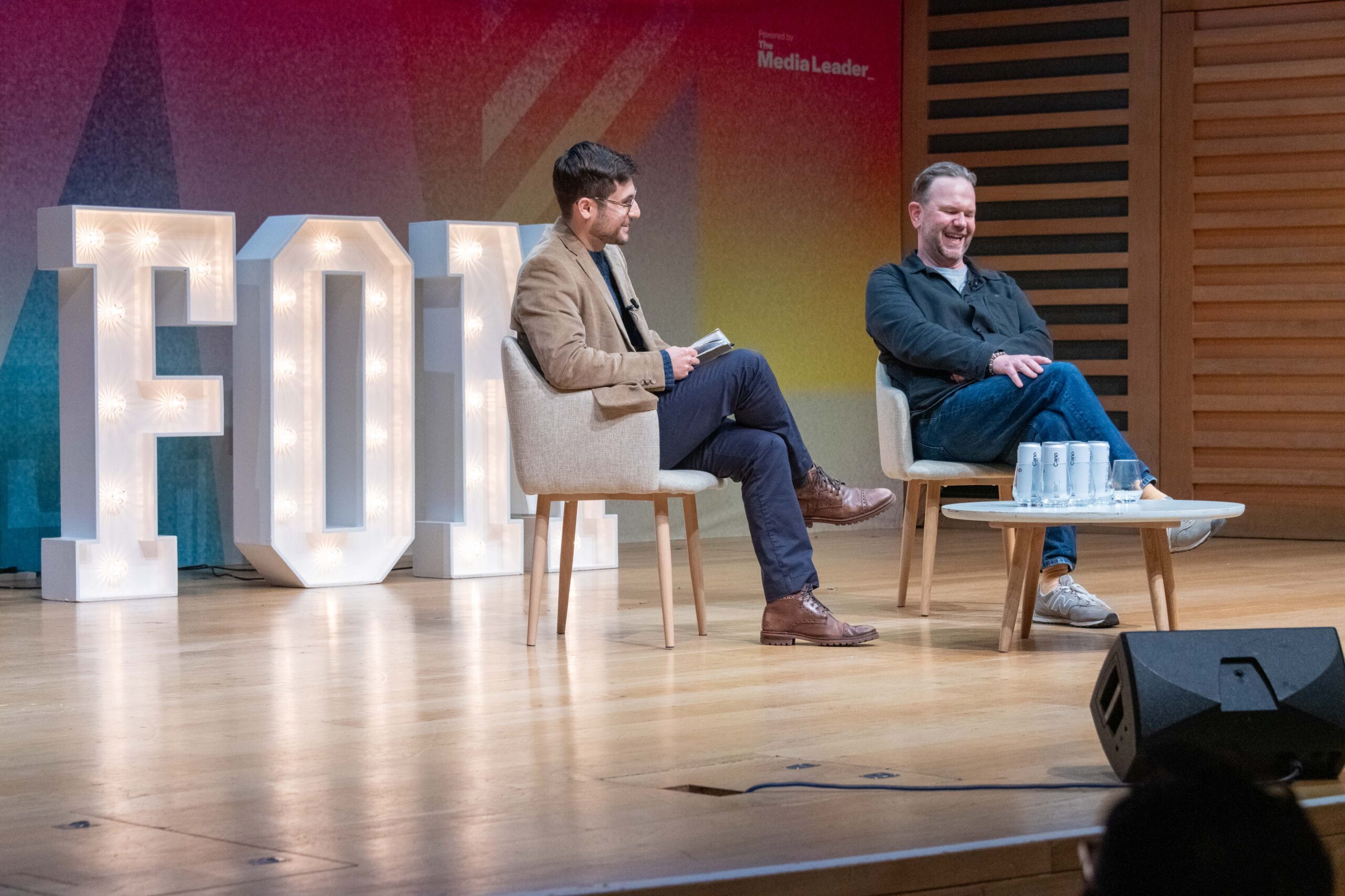James O’Brien: UK and US media ‘utterly unequipped’ to cope with lying politicians

The Future of Media London 2024
“The media on both sides of the Atlantic is utterly unequipped to cope with people who are prepared to look you in the eye and tell you its raining outside when it’s actually 40 degrees [Celsius].”
In an interview with The Media Leader at the Future of Media London last week, LBC presenter and Full Disclosure podcast host James O’Brien decried what he sees as news outlets’ betrayal of audience trust in their attempt to remain neutral in their media coverage of political figures like Donald Trump, Boris Johnson, Nigel Farage, and controversial topics like Brexit.
“Trust is something that we start with in the media, and then you can end up abusing or exploiting it,” he said, using Fox News as an example of an outlet which has “abused” the strong trust its viewers have by misleading them about their social and political reality.
He added: “There isn’t enough valuing and enhancing trust that’s going on.”
False equivalence ‘an absolute cancer at the heart of news coverage’
Speaking to a packed crowd at Kings Place conference centre in central London, O’Brien argued that news organisations regularly fall into the trap of creating false equivalences when attempting to remain neutral about political candidates.
For example, O’Brien said many media outlets may treat Donald Trump’s “outrageous” lies as severe, but also report on “missteps” by Kamala Harris and her campaign with a similar level of scrutiny, even if they don’t warrant the same degree of concern.
“A blatant lie versus a misstep, an error, is not equivalent,” he argued. “That remains, even now, an absolute cancer at the heart of news coverage across both sides of the Atlantic.”
O’Brien was indeed equally critical of US news outlets as British news outlets, stating that Brits can “get a bit snobbish” in thinking the UK news media market isn’t quite as poor as the American market because Fox News does not air in the UK.
“But we’ve got the Daily Mail,” said O’Brien, noting the Mail owner’s support and praise of the Nazis during the 1930s, as well as more recent sensationalist political coverage.
O’Brien, who worked as an occassional presenter for the flagship BBC current affairs programme Newsnight from 2014 to 2018, also complained the BBC forced the producers to provide a range of opinions on issues even when the issue in question didn’t warrant it.

For example, when covering the World Trade Organisation’s (WTO) post-Brexit standards for UK international trade, O’Brien’s Newsnight programme booked Pascal Lamy, the former director-general of the WTO, to speak on the issue. But the programme was subsequently forced to book another guest to provide “balance” on the topic lest the broadcaster receive complaints from Downing Street. Newsnight booked then-Tory cabinet minister and leading Brexiteer Andrea Leadsom.
“If you were watching Newsnight at the time, you’d have thought these were two equal and opposite forces that were speaking with comparative authority, and they weren’t. There was the economic establishment, and then there were strange people,” O’Brien joked to applause from the audience.
“The tragedy, journalistically, was treating them as equal.”
Platform political figures – but ‘be prepared’
Still, O’Brien was clear he was against the argument that “platforming” far-right politicians like Trump, Johnson and Farage is dangerous or otherwise something to be avoided by news media, even if those politicians are likely to use media coverage to spread lies or otherwise mislead captive audiences.
“I don’t think you can non-platform senior political figures,” he argued. “That would cause more problems than it solves because it would create more cries of victimhood.”
He said that few such leaders are willing to come on his LBC programme because they know he wouldn’t allow space for them to lie.
Advertising adjacent to quality news content is brand-safe regardless of topic
“By all means, give these people a platform,” said O’Brien. “I’d be a little bit embarrassed if they wanted to come onto your platform, because they have such a strong track record of misleading and lying.
“But if you’re going to give them airtime, then be prepared, and make sure you know when they say something that isn’t true, and if you’re not sure, get someone to check in real time. It’s so easy to do in a broadcast situation. There’s this thing called the internet. You can Google whether something is true or not.”
‘The certainty with which people hold ridiculous opinions’
O’Brien, a self-admitted liberal and a firebrand for the left-of-centre, typically splits time on his programme between monologuing about current events and receiving calls from listeners on a variety of topics, often with the aim of refuting their misconceptions or beliefs about British politics. He also interviews what public figures are willing to join him on his mid-morning weekday programme.
Notably, he revealed that neither he nor his producers script his monologues. Instead, he performs them entirely off the cuff.
O’Brien’s monologues, as well as clips from caller conversations, have become popular on YouTube and other social video platforms. However, when asked whether he considers what will resonate with audiences outside of radio when preparing for his show, he said they weren’t a conscious concern.
“I don’t think about anything in the studio except the one person I’m talking to,” said O’Brien. “And that one person is you. Or you, or you; driving in the car or in the passenger seat.”
He warned that “if you start thinking about millions of views on Twitter”, you can lose sight of the programme’s primary aim, which, like all radio, is to provide information, entertainment and a sense of community to listeners.
When asked to ponder what has surprised him most about his audience, O’Brien said what continues to astonish him is “the certainty with which people hold ridiculous opinions”.
In the case of Brexit, for example, O’Brien remains shocked that the “foundations of [callers’] beliefs are so rock-solid” that they are willing to phone into a national radio station to complain about the EU even when those beliefs regularly fail to hold up to scrutiny when challenged by O’Brien.

The same contingent relationship with the truth is true of many Americans, he added.
“There are millions of people in America who believe, right now, that Haitian Americans in Springfield, Ohio eat cats and dogs,” O’Brien said incredulously. “They really do. It’s funny and it’s heartbreaking at the same time, particularly for Haitian immigrants in Springfield, Ohio.”
He continued: “The space I’ve managed to carve out — originally quite violently and later more gently — is to try to lead people away from believing this nonsense and to a place where a little bit more reality and sanity resides.”
‘If you can hang onto truth, you will not go mad’
Talking candidly less than a month before the US presidential election, O’Brien agreed Democrats “did the right thing” to move on from President Joe Biden and replace him on the ticket with Kamala Harris and her running mate, Minnesota governor Tim Walz. But he stopped short of making any predictions about the outcome of the election.
“I don’t like jinxing things after the last 10 years,” he said. “It’s that old line about hope: ‘I can deal with despair. It’s the hope that gets you.'”
O’Brien warned that the “forces of authoritarianism, totalitarianism [and] oppression” are on the rise in the US and UK, and that it is an imperative that both the media and public “are constantly pushing back”.
“For much of my life I didn’t realise that you needed to,” he said. “For much of my life, I thought the great battles of our time had been won… But nothing is ever won forever, even stuff that seems to us immovable.”
Asked to ponder his professional legacy after twenty years as a presenter for LBC, O’Brien added: “I’d like to be remembered as someone who spoke truth to power.
“There’s a line in Orwell: ‘There is truth and there is untruth. And if you can hang onto the truth, even if you are the only one, then you will not go mad.
“I’d like my legacy to be not going mad. And sometimes perhaps having been the only one.”




